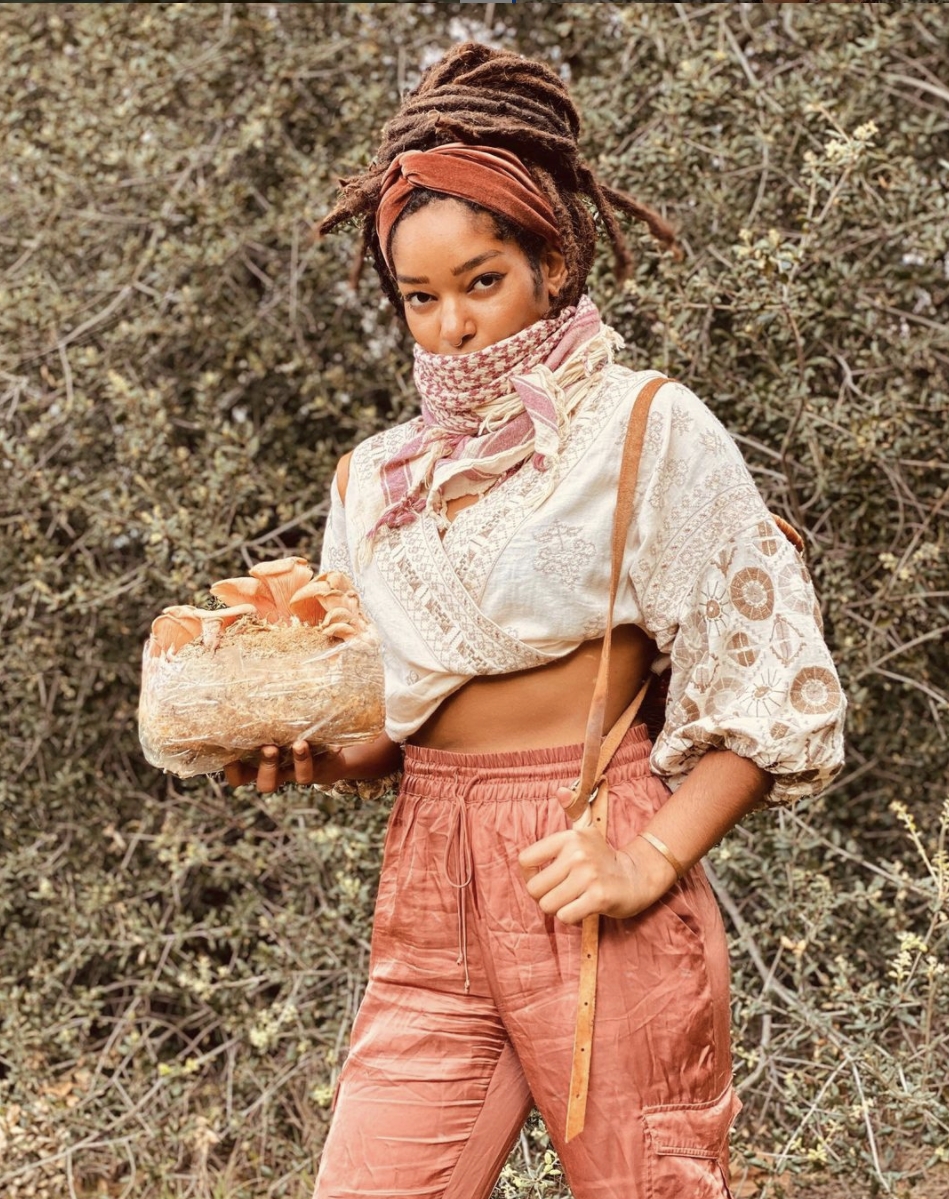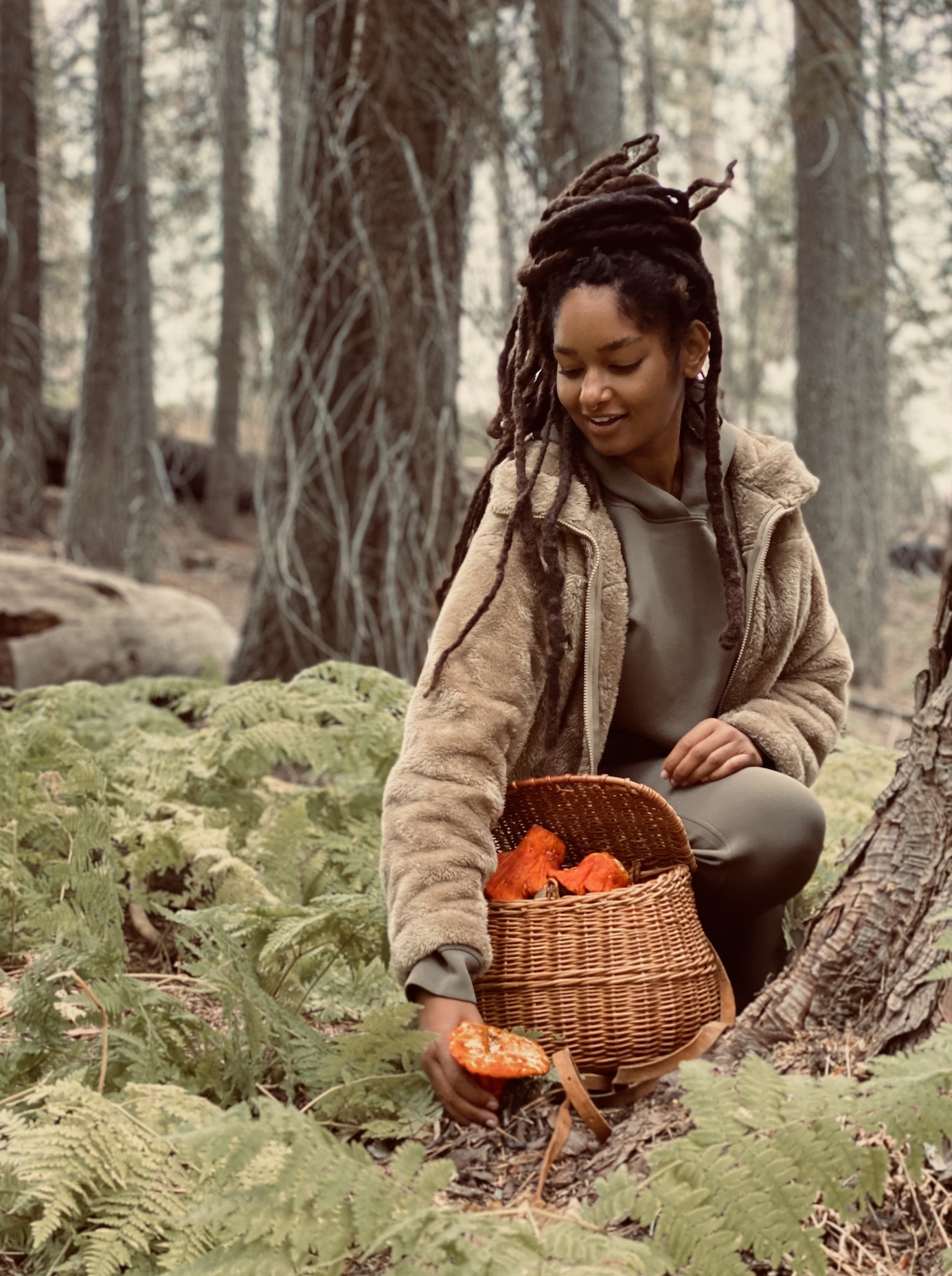
“We are all realizing that the past systems of obtaining food don’t really hold up during a global pandemic,” says urban gardener, educator, and forager Indy Srinath. “What I hope for people — and what I think people are finding out now — is that they can provide food for themselves, and it can bring a real sense of joy and help them realize they’re capable of a lot more than they previously thought they were.”
To put it quite simply, Srinath is on a mission to change the way we feed and see ourselves. No, she’s not pushing some new-fangled diet, she’s simply trying to get people more involved in the process of food sourcing as a way to build resilience, self-sufficiency, and community.
“I think that in growing your own food, trading your food with your community, and sharing your crops, you’re helping to strengthen the resilience and create permanency in the area where you live,” she says. “If you have a backyard that doesn’t have anything growing in it aside from grass you don’t have much permanency there. Once you start planting seeds and planning for a food future then you’re creating a community that has value and that strengthens your ties with other community members.”

Srinath knows all about what it takes to build a community. Whether we’re talking about the urban garden she manages in Asheville, North Carolina, the many gardens she’s helped set up in other cities around the nation, or the online audience she’s built thanks to her keen eye for beautiful photography and deft ability to educate, she is committed to sharing her life experiences with anyone eager to learn.
“I always just wanted to be an example of what I needed when I was growing up,” she says. “I didn’t have a lot of people that I felt represented how I looked or my demographic to learn from.”
So Srinath became that person. Through her online and in-person teaching efforts and the resources she shares with her audience, she is quickly becoming representative of a new wave of young, positive-minded people who are trying to make the world a better and more equitable place.
“I just want young women of color to feel like they have a teacher,” she says. “Someone who is willing to readily share their experience with them.”
The first part of this mission is to teach others that urban farming, gardening, and foraging doesn’t have to be as difficult as it sounds.
“It’s really important to know that you can start small and start locally. Find out what foods are in season and what you can plant at the moment, given your geographical area. You don’t need to have a ton of land access in order to grow a lot of food. You can grow food in a windowsill, you can grow food on balconies, or — like a lot of the work I do with folks who don’t even have access to a house — you can grow food outside of a tent, right on the sidewalk.”
When it comes to foraging, it’s as easy as going outside. Though Srinath says first-time foragers shouldn’t just dive straight into picking random foliage. (I did that once, that’s how I found out all about poison ivy.)
“For beginners, it’s important to just go out as an observer,” she says. “Walk around your neighborhood with a plant identification book, and find out what foods are in season and what foods are growing locally. Tapping into what your environment holds for you is really important.”

Srinath believes that every environment, from the densest of cities and food deserts to sprawling rural areas, has bountiful resources for those who are inclined to look or begin to produce for themselves. Ultimately though, the key is to set your expectations realistically, take it slow and enjoy the process. Given that we’re living through a global pandemic, time is on our side and resilience feels like a key skill.
“Enter with a very open mind and realize that you don’t have to do everything all at once. You’re not going to plant a seed and be able to sustain yourself on the first day. Fruitfulness comes from the experience of what you’re doing. Try to really enjoy putting that seed into soil and the planting process can really make you feel fulfilled even in a smaller garden space.”
Ultimately, Srinath states that gardening, farming, and foraging is only part of the journey. She has serious ideas about how we should build community and resiliency going forward. Post-COVID, she believes in highly interactive communities with sharing as a cornerstone value.
“I think that a combination of gardening, farming, and foraging is really helpful for supplementing your food sources,” she says. “But bartering with your community is also really important. If you grow tomatoes and your neighbor grows cucumbers… I think we should return to a way of life where we are open and able to trade with one another for foods that we may not grow or may not have access to.”
Hers is a radical vision for the future — connected to wild spaces and the soil and filled with collectives of people managing shared goals. Yes, it’s a bold dream. But while the challenge is formidable, we have no doubt that’s it’s possible. Especially with young leaders like Srinath working to make it a reality.

